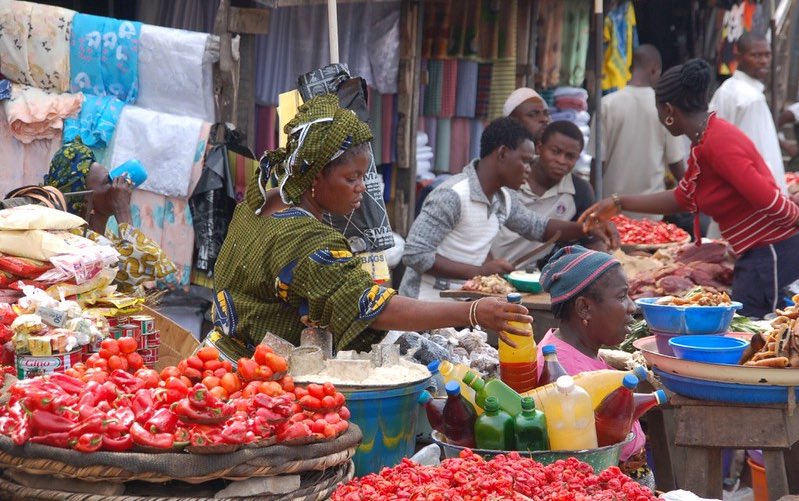The COVID–19 pandemic, ongoing conflicts, and other problems made 2020 a difficult year for global nutrition. Knowledge will be crucial in addressing current nutrition issues and advancing the nutrition agenda for 2021 and beyond. Transform Nutrition West Africa (TNWA), a project led by IFPRI and funded by the Bill & Melinda Gates Foundation from 2017-2021 and now concluding, has worked to put stakeholders and knowledge generation at the heart of decisions about policies and programs for maternal, infant, and young child nutrition.
TNWA’s aim is to support effective policy and programmatic decisions and actions to improve maternal and child nutrition. It has pursued this goal by encouraging an inclusive and collaborative process of knowledge generation and mobilization among the many stakeholders involved. As a regional platform, the project’s overall West Africa approach has been anchored in four focal countries where more-intensive work has been done: Ghana, Nigeria, Senegal, and Burkina Faso.
The project has assessed and analyzed nutrition-relevant data, programs, and policies to generate knowledge on optimal approaches; it has mobilized this knowledge to strengthen enabling environments and inform decision-making on issues where nutrition plays a role. The project’s unique mix of leadership building, knowledge generation, and mobilization allowed country- and regional-level voices to express their needs and enabled TNWA to tailor its activities to those needs. (Click on the image below for an interactive review and reflection on the project’s achievements, the approach taken, methods applied, and results achieved.)
TNWA’s approach will be central to moving the agenda forward for maternal, infant, and young child nutrition in West Africa and beyond. Below are some of our key achievements and reflections on the factors and qualities that have enabled us to realize project goals and to inspire nutrition professionals and organizations to continue investing in decision-making that is supported by a robust knowledge base.
Here are the project’s major findings:
- A holistic approach to nutrition, combined with a unique mix of demand- and supply-driven approach to knowledge generation, helped the project create knowledge products that were both useful and used. One example has been the adolescent nutrition landscape, which has shed light on research trends and identified knowledge gaps throughout the region to inform the West African Health Organization and other decision-makers to support policy and program development for adolescents in the region. Through engagement with partners, this resulted in the Addendum to the 16th Economic Community of West African States (ECOWAS) Nutrition Forum Recommendations on Adolescent Nutrition that informed countries how to operationalize its recommendations.
- The program’s mix of leadership building, knowledge generation, and mobilization allowed country- and regional-level voices to express their needs and enabled TNWA to tailor knowledge generation to these needs.
- The strategic and synergistic partnerships TNWA built, reinforced the mobilizing and advocating for action around nutrition. Memorandums of understanding (MOUs) were signed with UNICEF, Alive & Thrive, and the West African Health Organization (WAHO), and a joint work plan was drawn up aimed at Multiplying Impact and Reducing Duplication on activities to improve maternal, infant, and young child nutrition. The beating heart of these successful partnerships was the alignment of vision and values and the commitment to achieving common goals; their success was also due to the trust, integrity, and inclusiveness embedded in the relationships, and to the value creation leading to the whole becoming greaterthan the sum of its parts.
- TNWA’s convening role and mandate to engage across multiple organizations using evidence as a basis for joint, concerted and coordinated action provided time and space to build meaningful partnerships.
- TNWA built a nutrition network in the region by providing opportunities for stakeholders to meet nutrition experts with diverse backgrounds from different West African countries. This can be put to use throughout the region for accelerating action on nutrition.
The TNWA project faced its share of challenges, including facilitating across multiple organizations and levels and across different agendas, as country, regional, and global agendas do not necessarily align. Building credibility and trustworthy relationships also takes time; more time would have been helpful for making use of returns on the investments made throughout the project and generating a greater impact. Because we were acting in four focal countries as well as at the regional level, outputs were at times not applicable to the whole region. The lack of a physical presence in these countries has also been a limitation, though the country-driven leadership in each has been key to bringing the project to fruition.
Overall, we are hopeful that the project as put a foundation in place that others can use to continue to build more effective collaboration on crucial nutrition issues. The region has begun to envision a new agenda for strengthening intersectoral partnerships and networks and the use of knowledge to advance policy and program actions around the nutrition agenda.
Roosmarijn Verstraeten is a former Research Coordinator with IFPRI’s West and Central Africa Office in Dakar, Senegal.







